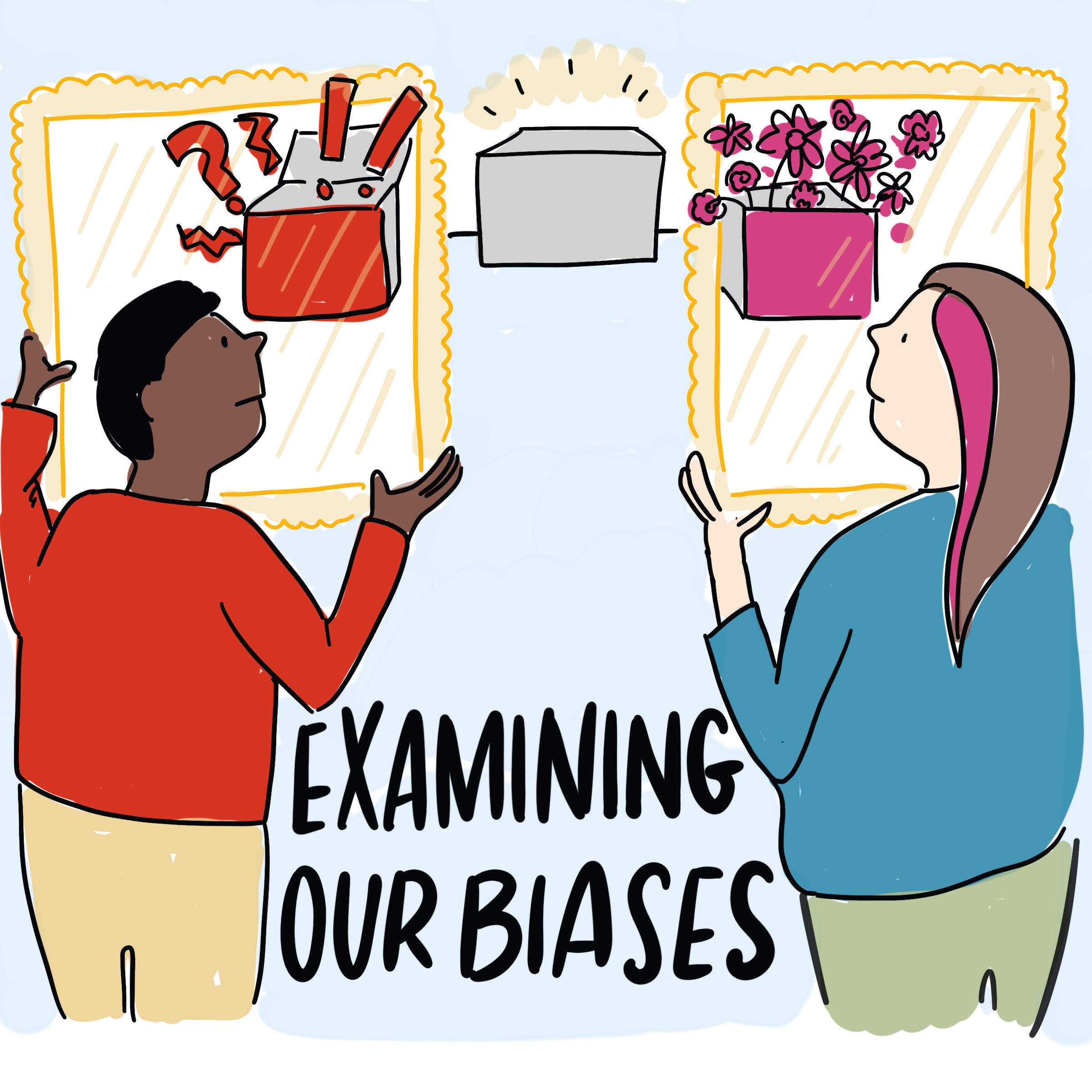We All Judge

We judge.
Everyone does.
It is impossible to be non-judgemental because our brains are wired to judge. Evolutionarily speaking, without the ability to judge we wouldn’t survive. We would have to relearn basic things every day. Functioning in the world would be really challenging.
If the word “judge” bothers you, consider any of these words instead: discern, assess, evaluate, determine, distinguish, intuition, conclude. All these words have similar root meanings.
We choose to avoid using the term “non-judgemental” in peer support, because it is virtually impossible not to judge. Denying the fact that we all judge, actually makes it more likely that we will get lost in our big sweeping judgements. When we deny that we judge, we don’t pause to notice our biases and check our perceptions. And then we unconsciously think that our small “t” truths are universal BIG “T” TRUTHs for everyone.
We can, however, learn to be more aware of our worldview and perceptions, as well as the judgements, assumptions, and biases that stem from them.
When we are aware of this very basic human tendency to judge, we can learn to:
- Choose to see our worldview as a cumulation of our past experiences
- Consciously choose to notice and pay attention to our judgements
- Consciously choose to put our judgements aside
- Get curious about someone else’s experience and worldview
- Seek to understand another person’s perspective, instead of trying to convince others that we are “right”
We all have unconscious or implicit biases. Realizing that we have them is the very first step in dismantling them.
It’s our goal to approach this topic of judgment as a normal human function that requires intentional and mindful attention. If we are willing, we all have the capacity to manage our judgements, assumptions, and biases.
Let’s go deeper into examining how this process works.
Media Attributions
- Examining our biases by Drawing Change is licensed under a CC BY 4.0 licence.

